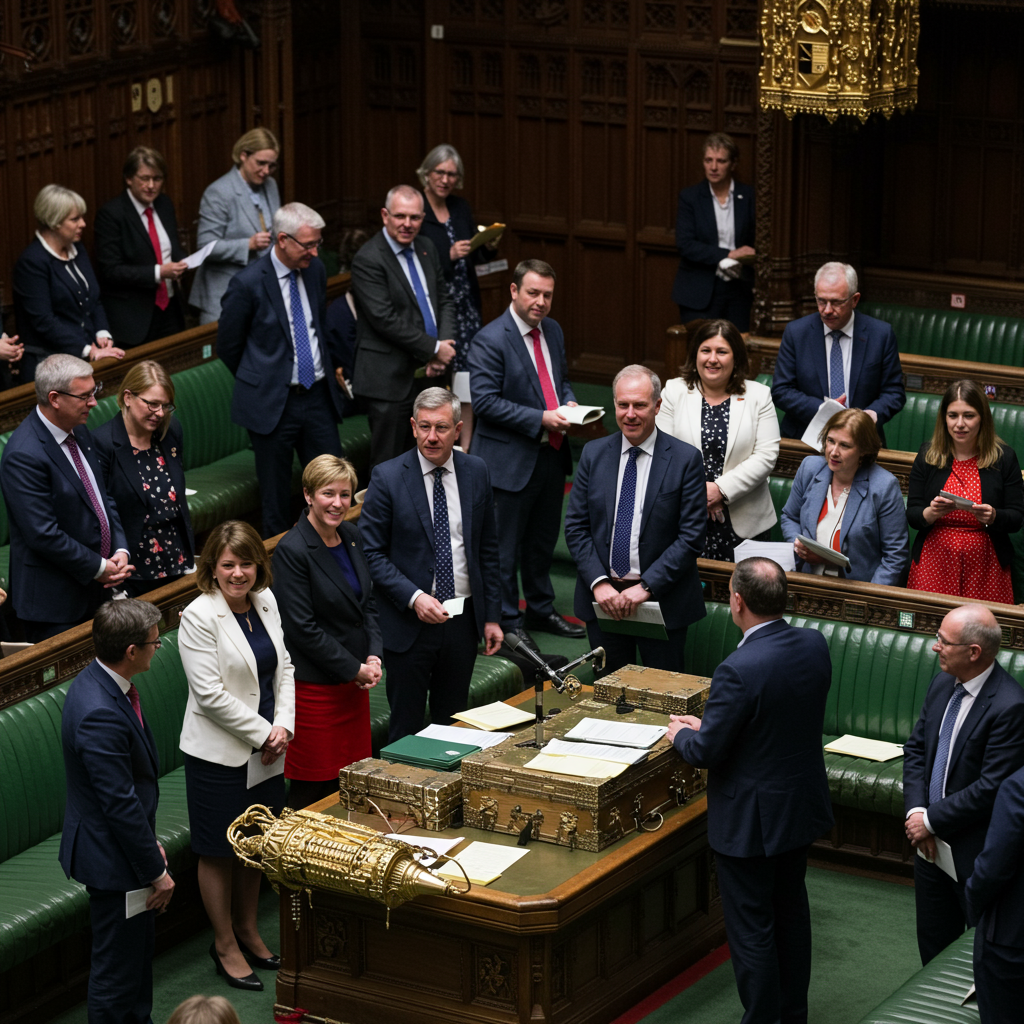Landmark Vote Reshapes UK Abortion Law
In a historic move, Members of Parliament (MPs) in England and Wales have voted overwhelmingly to change abortion legislation, removing the threat of criminal prosecution for women who end their own pregnancies. The landslide decision marks the most significant shift in abortion law across the two nations in nearly 60 years.
The vote, passed by a substantial majority of 242 (379 votes in favour, 137 against), centred on an amendment to the government’s Crime and Policing Bill. This amendment aims to protect women from being investigated, arrested, or imprisoned under outdated laws, specifically sections of the 1861 Offences Against the Person Act, which previously criminalised abortion.
MPs were allowed to vote according to their personal beliefs on this sensitive issue. The successful amendment means that women in England and Wales will no longer face criminal charges related to their own pregnancy terminations, regardless of the circumstances, including gestation.
What the Vote Means for Women
Removing the Threat of Prosecution
Under the previous law, women could face severe penalties, including life imprisonment, for ending their pregnancy outside the established legal framework. This recent vote effectively removes this criminal liability from the woman herself. Campaigners and legal experts highlighted that this outdated law was increasingly being used to prosecute vulnerable women, causing immense trauma and distress.
No Change to Abortion Provision Rules
Crucially, this amendment does not alter the existing legal framework for accessing abortion services provided by healthcare professionals. Regulations concerning the 24-week gestational limit for most abortions, the requirement for two doctors’ approval, the legal grounds for termination, and the provisions for telemedicine (allowing pills by post up to 10 weeks) remain unchanged. Criminal penalties will still apply to anyone, including medical professionals, who assist a woman in obtaining an abortion outside of these defined legal guidelines.
Why Was This Change Needed? Rising Prosecutions and Outdated Law
The push for this reform gained significant momentum following a notable increase in the number of women facing police investigation and prosecution for ending their pregnancies in recent years. While convictions were historically rare under the 1861 Act, at least six women have been convicted in the last four years, with dozens more undergoing lengthy investigations or arrests. Supporters of the amendment argued that the Victorian-era law, passed by an all-male parliament, was ill-equipped to handle complex modern cases and was being used against women who needed support, not punishment.
Cases That Drove Reform
Several high-profile cases illustrated the impact of the old law and galvanised calls for change:
Carla Foster: Sentenced to 28 months in prison in 2023 for a late-term termination after obtaining pills remotely during lockdown. Her sentence was later reduced and suspended on appeal, with judges noting the need for “compassion, not punishment.” Under the changes just voted for, she would not have faced prosecution.
Nicola Packer: Acquitted by a jury recently after a nearly five-year police investigation related to her use of abortion medication. Her case was cited in Parliament as an example of the trauma caused by the existing law.
Other cases involved women who were vulnerable, victims of abuse, or who had experienced devastating personal circumstances, enduring years of legal uncertainty and suffering.
MPs supporting the amendment argued that these women were victims of “cruelty,” not justice, and that the law needed urgent reform to prevent similar future cases.
The Parliamentary Debate: Support and Opposition
The amendment was put forward by Labour MP Tonia Antoniazzi. She argued compellingly that the law was being used against women in “desperate circumstances,” noting that while nearly 99% of abortions occur before 20 weeks, the focus of the amendment was on the small percentage of women facing criminalisation.
The move was widely backed by 180 MPs from across political parties, all major abortion providers like the British Pregnancy Advisory Service (BPAS), and over 50 organisations, including the Royal College of Obstetricians and Gynaecologists (RCOG).
However, the vote was met with strong opposition from some quarters. Anti-abortion groups like the Society for the Protection of Unborn Children (SPUC) expressed horror, arguing that removing the criminal threat to women allows abortion at any point in pregnancy, effectively decriminalising late-term terminations by the woman herself and removing legal protection for the fetus near term. Some MPs echoed concerns about unintended consequences and the potential for the law to appear to permit abortion up to birth for any reason by the woman.
Other Amendments Considered
Two other significant amendments related to abortion law were debated but did not pass:
A proposal by Labour MP Stella Creasy to go further, completely repealing the relevant 1861 Act clauses and enshrining abortion access as a human right, did not proceed to a vote.
- An amendment from Conservative MP Dr Caroline Johnson, which sought to mandate in-person consultations for women seeking abortion medication via the ‘pills by post’ scheme, was defeated by a wide margin (379 votes to 117).
- www.bbc.com
- www.theguardian.com
- www.dailymail.co.uk
- www.politicshome.com
- www.theguardian.com
Reaction and Next Steps
The vote was widely celebrated by reproductive rights campaigners and medical bodies. Prof Ranee Thakar, President of the RCOG, hailed it as a “victory for women and for their essential reproductive rights,” stating it sends a powerful signal about women’s autonomy. Heidi Stewart, Chief Executive of BPAS, called it a “landmark moment” and the most significant change since the 1967 Abortion Act, promising an end to investigations and prosecutions of women, including those who have suffered miscarriages.
Opponents, including SPUC, have vowed to campaign against the change as the bill progresses.
The amendment must now complete its legislative journey through the House of Commons and be considered by the House of Lords before it can receive Royal Assent and officially become law. Despite potential challenges in the Lords, the significant majority achieved in the Commons suggests a strong push for the change to be enacted.


